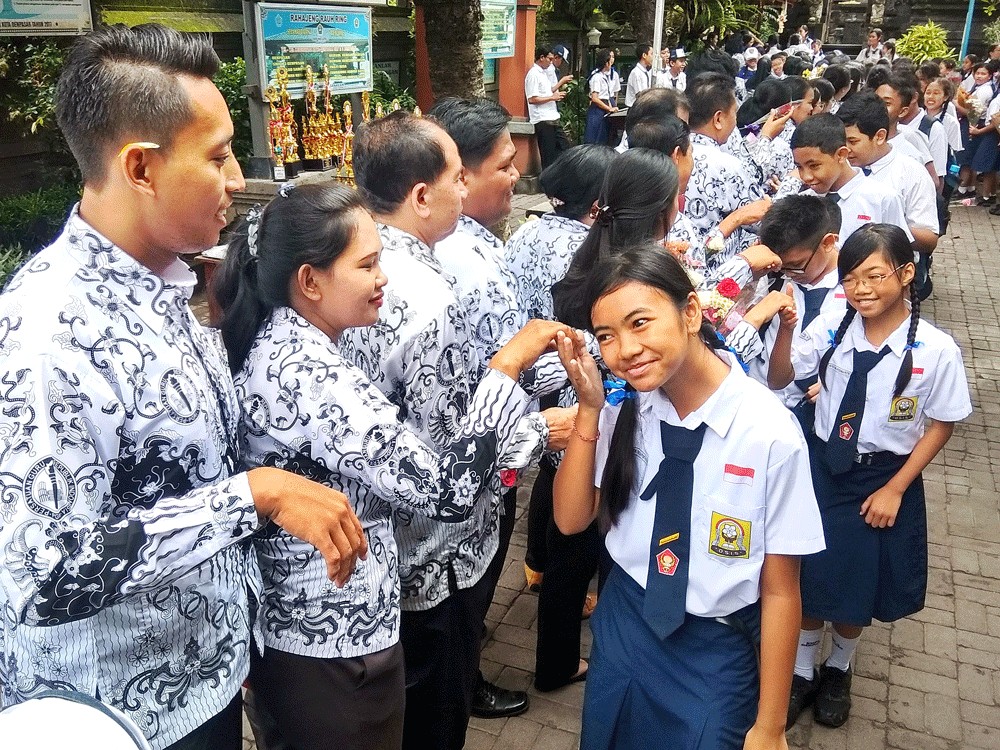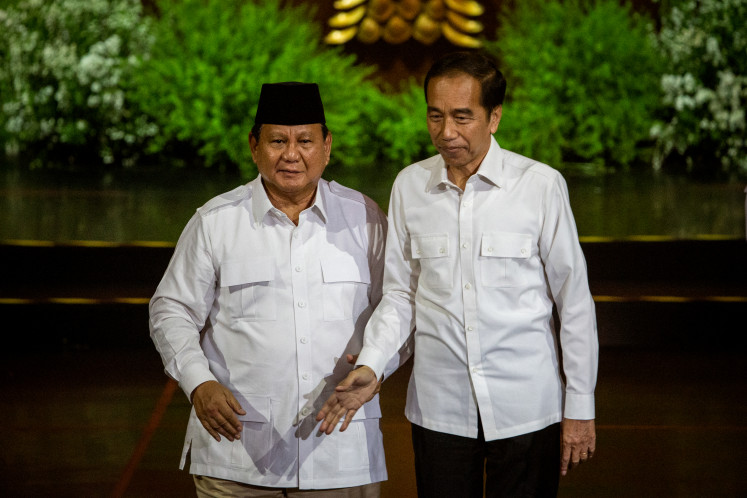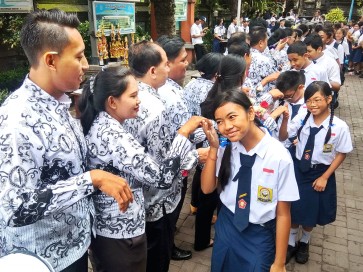Popular Reads
Top Results
Can't find what you're looking for?
View all search resultsPopular Reads
Top Results
Can't find what you're looking for?
View all search resultsEducation wisdom from remote, neglected areas
National Education Day was celebrated on May 2, and we still need to examine children’s education in isolated places.
Change text size
Gift Premium Articles
to Anyone
T
hink about a boy or a girl in one of our remote islands. Does he or she go to school routinely? Do they have dedicated teachers who come every day, rain or shine? Do they have functional classrooms with desks and chairs? How do the schools apply the curriculum; are books sufficient, are there nice playgrounds?
National Education Day was celebrated on May 2, and we still need to examine children’s education in isolated places. A teacher in Aurimi public elementary school in Sarmi regency, Papua, shared a main key to education in Papua: “To teach in Papua, the first thing to do is to raise students’ interest in learning and make them love their teachers so they are eager to go to school.”
A recently published study by Article 33, an independent group, shows that the government’s Frontline Teacher Program (GGD) and Frontline School Program (SGD) have positive impacts on learning interest in remote areas. The program has successfully improved the national exam scores among students and reduced the gap of students’ academic achievements within every school.
Indeed, teachers have the greatest impact on student’s learning process, as researchers have confirmed.
The above evaluation of both programs shows one objective has been achieved, to better spread quality education, in line with President Joko “Jokowi” Widodo’s focus on “developing the nation from the periphery”.
The Education and Culture Ministry has gradually improved teacher recruitment more than tenfold since 2015, from 798 teachers, to over 9,000 teachers last year. Almost all graduated from college between 2010 and 2013, and most of them are under 30 years old.
Therefore, we have legitimate optimism that the young teachers will be the new force of change in our education system. They will be awarded the much coveted civil employment status upon completing their duty in the GGD program.


















